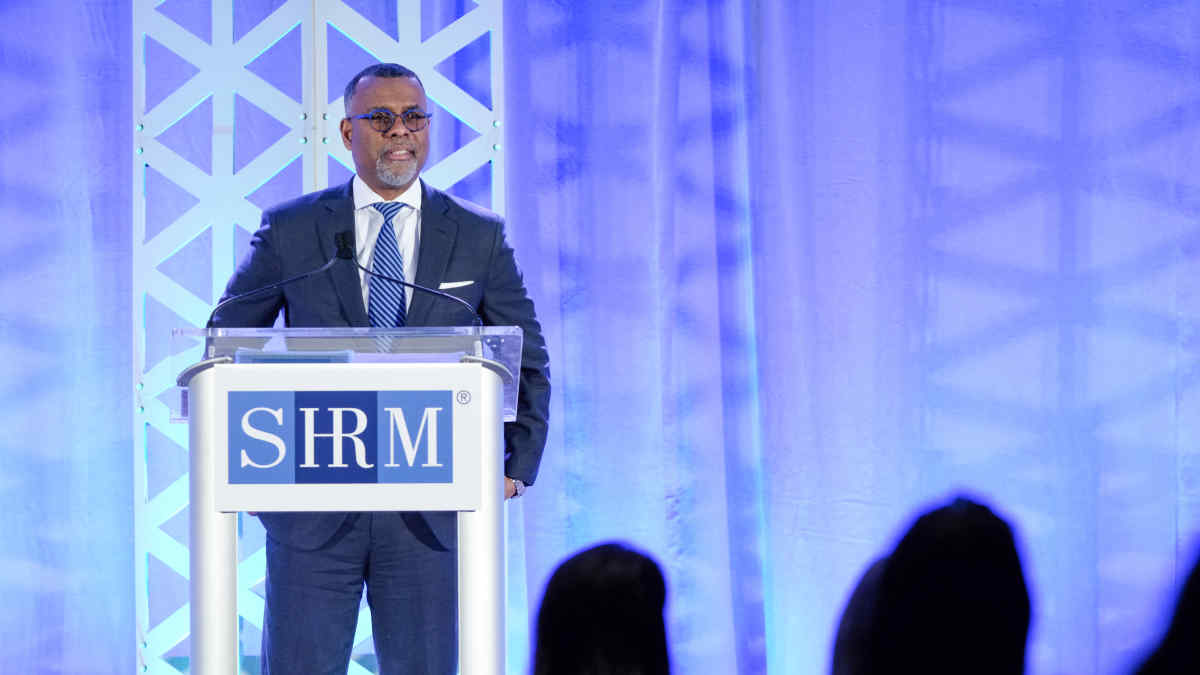

?The United States is at an “inflection point” with “deep discord” among political and social groups, said Eddie Glaude Jr., author and chair of the Department of African American studies at Princeton University in Princeton, N.J.
Now “is a moment of such turmoil. It seems like the country is struggling to live up to its ideals,” he told attendees at the SHRM Employment Law & Compliance Conference, which opened in Washington, D.C., on Feb. 26. “Americans are divided, and those divisions go well beyond ideological differences. They go to the marrow of the bone. Race shadows it all.”
With companywide policies, affinity groups and workplace trainings, HR can be a bridge that draws together people from different races, religions and cultures. “We are so separated. We are walking mysteries to each other,” Glaude said. “The folks who come into your workplace bring all that with them.”
For many employees, work may be the only place where they interact with people who are different from them. People are interdependent, and “it is in the going towards [one another] that our salvation is to be found, not separating into our individual silos,” Glaude noted.
He urged HR leaders to look introspectively at their own habits and how racism and injustice have manifested in their own workplaces. “Have an idea of justice without exceptions,” he said, meaning that it is inclusive of everyone.
Recent years have seen increasing rates of hate crimes based on race, religion, sexual orientation and gender identity, according to the U.S. Department of Justice.
Because of that recent context, it’s important for HR leaders to “let employees know that they will be protected in your workplaces,” which means you must hold people accountable for misconduct, Glaude said. “If the rules are on the books, hold people accountable, because some people believe they stand above what our work environments demand of them. We don’t want to hold folks accountable because they are people we love. They are the people we have drinks with. Silence equals complicity.”
Accountability can happen with written policies against harassment and discrimination, backed up by well-run internal investigations when HR receives a complaint.
“Sometimes, America feels like Never Neverland full of lost boys and lost girls. What’s distinctive about Never Neverland is no one wants to take responsibility. No one wants to be held to account,” Glaude said.
Democracy at Risk
Two years ago, protesters violently stormed the U.S. Capitol in an attempt to block the certification of the 2020 presidential election results.
“The world is screaming that it is on fire. Our democracy remains in jeopardy, and it’s our responsibility to save it,” Glaude said.
To bolster democracy, Glaude urged people to adopt a more truthful approach to history that doesn’t leave out certain groups.
“Discard the belief that some lives are worth more than others,” he said. “Americans remain trapped in a history we refuse to know, but we bring it with us. We’ve been lying to ourselves since the beginning about who we are and what we have done.”
He challenged leaders to have the courage to tell the truth about the mistakes of the past.
Calls for racial justice have seen some backlash. In recent years, a number of states have banned the teaching of critical race theory, which posits that race is a social construct and that racism is embedded within institutions and policies, both historically and currently. In April 2022, Florida passed the Stop WOKE Act, which restricted how companies can provide diversity training to employees, but a court approved an injunction to prevent that law from being enforced.
At the conference, James L. Banks Jr., SHRM’s general counsel, said, “As this world changes, so do our laws, regulations and best practices that we bring to workplaces, and so do our responsibilities as business leaders.”

